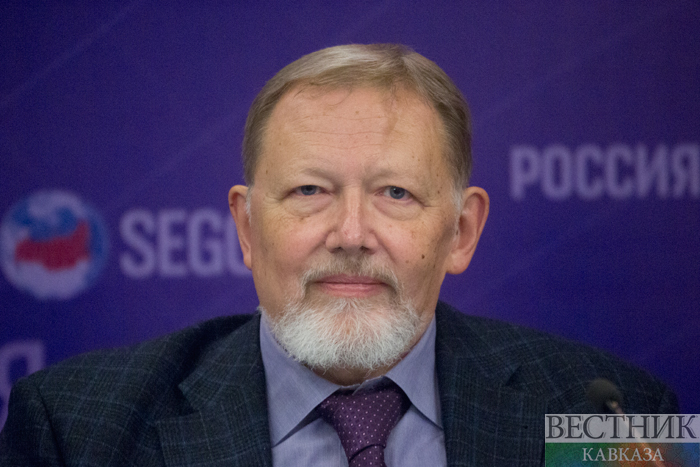Since the end of the last century Russia is experiencing its third major crisis - at first there was a default of 1998, then the crisis of 2008-2009, which has become a consequence of the global financial collapse. The current crisis is considered by some economists a continuation of the previous one, claiming that Russia has "not climbed out of the pit of 2008-2009," and the structural problems were piling up. Meanwhile, according to the head of the department of Finance and Credit of the M.V. Lomonosov MSU Economic Faculty, former head of the Russian Central Bank, Sergey Dubinin, all these crises took place in radically different epochs of economic development.
"If we compare the economic crises, the conditions are dramatically different. This time the overall situation is stable, there is no collapse of the banking system, people pay taxes, which they did not do until 2000. Previously, our enterprises avoided this. As a major industrialist told me in the beginning of the 1990s: "Your money will be stolen anyway. I'd rather do it myself." We have lived with this logic for 10 years before the 1998 crisis. The inflation was reducing, the exchange rate was strengthening, but the base was very shaky. Now the base is much more stable. But there is one common problem - the economy's reaction to that challenge during various crises. When one has a fairly stable currency, it is necessary to adapt the production, the whole course of economic life to this situation. But they require to adapt the course to the economic situation. Not increase productivity and competitiveness, not make additional investments, taking advantage of a stable exchange rate, and bring them from abroad, but vice versa - let's lower the rate to achieve the convenience of living with our poor productivity. Unfortunately, it was common for 1998, 2008 and 2015. And it is the main problem of our economy."

Commenting on the proposal to abandon the idea of the use of inflation targeting, Dubinin noted: "There are arguments in favor of such a decision. There was no self-regulation of the economy against a background of changing course. Our fiscal authorities, working with a budget, are expecting an inflow of funds in dollars for our companies from oil exports. Now the authorities indirectly insist on a certain rejection of the declared principles of a free-floating exchange rate. I think that a free-floating exchange rate damps a lot of problems in our economy. The market's automatic reaction removes the threat of collapse in one direction or another".
At the same time, Dubinin lamented the high dollarization "People consider a foreign currency as a means of accumulating personal savings, like bonds. But there may be losses as well, if the ruble strengthens. Therefore, today it would be right to divide personal savings to rubles and foreign currency. Then you hedge fluctuations of both. Do not try to play these games. They are fraught with great trouble for people. You cannot bet on it, say, "I'll catch the most favorable rate and earn something." Professionals make mistake here, and common people have nothing to do in the market. "






